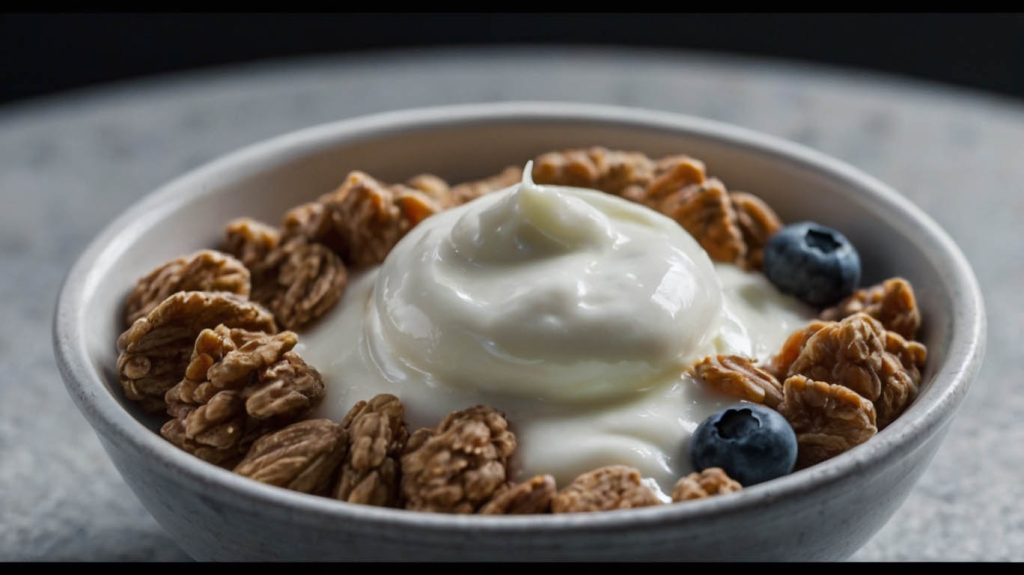The Ultimate Guide: Is Yogurt Safe for Dogs?
The story is a familiar scene in many homes. You’re enjoying a healthy snack of creamy yogurt when a pair of loving eyes and a gently nudging nose appear at your side. Your dog is clearly interested, and it’s tempting to share a spoonful of this seemingly healthy, protein-rich treat. This leads to the all-important question every responsible pet owner must ask: Is yogurt safe for dogs? The answer is a nuanced “yes, but…” The safety and health benefits of sharing yogurt are entirely dependent on choosing the right kind and understanding your dog’s individual digestive capabilities.
This comprehensive guide will tell the complete story of yogurt and your canine companion. We will begin by exploring the potential health benefits that a yogurt safe for dogs can offer, such as probiotics. Subsequently, and most critically, we will navigate the serious dangers lurking in many common store-bought yogurts. Furthermore, we will provide a clear, easy-to-follow checklist for selecting the perfect yogurt for your pup. Consequently, you will be empowered to make a confident and safe choice, ensuring this human food is a healthy treat, not a harmful mistake.
Why You Must Know if Yogurt is Safe for Dogs
Before we explore the benefits, it’s vital to understand why this question is so critical. A dog’s digestive system is not identical to a human’s. The primary concern with dairy products is lactose, the sugar found in milk. Many dogs are lactose intolerant, meaning they lack the enzyme (lactase) needed to break it down, which can lead to digestive upset.
Even more importantly, the modern food industry has introduced ingredients into yogurt that are incredibly dangerous for dogs. The most significant of these is the artificial sweetener xylitol, which is extremely toxic to canines. Therefore, knowing if yogurt is safe for dogs is not just about avoiding a messy case of diarrhea; it’s about preventing a potential life-threatening emergency.

The Potential Benefits of a Yogurt Safe for Dogs
When you select the correct type of yogurt and your dog tolerates it well, it can be a healthy, beneficial treat in moderation.
Probiotics for a Healthy Gut
This is the most celebrated benefit. A yogurt safe for dogs must be one that contains live and active cultures. These are probiotics, the “good” bacteria that support a healthy gut microbiome. A healthy gut is essential for proper digestion, nutrient absorption, and a robust immune system.
A Source of Protein and Calcium
Yogurt provides a boost of high-quality protein, which is essential for muscle maintenance, and calcium, which supports strong bones and teeth. These are valuable additions to your dog’s overall diet when given as a treat.
The Dangers: When Yogurt is NOT Safe for Dogs
This is the most crucial part of the story. You must be aware of the significant risks before sharing.
The Deadly Threat of Xylitol
This cannot be overstated. You must NEVER give your dog yogurt that contains xylitol. Xylitol is a sugar substitute that is extremely poisonous to dogs. Even a very small amount can cause a rapid, severe drop in blood sugar (hypoglycemia), leading to seizures, and can also cause acute liver failure. Always check the ingredient list on “sugar-free,” “lite,” or “low-calorie” yogurts.
The Problem of Lactose Intolerance
If your dog is lactose intolerant, even a yogurt safe for dogs in terms of ingredients can cause problems. Symptoms of lactose intolerance include:
- Gas
- Bloating
- Diarrhea
- Vomiting
The Risks of High Fat and Sugar Content
- Fat: Full-fat yogurts can be too rich for a dog’s digestive system. High-fat foods can potentially trigger pancreatitis, a painful and serious inflammation of the pancreas.
- Sugar: Flavored yogurts are loaded with added sugars, which are unhealthy for dogs. They contribute to weight gain, dental issues, and can upset the balance of good bacteria in the gut.

How to Choose a Yogurt That is Safe for Dogs
Now that you’re aware of the risks, here is the simple, clear checklist to follow to ensure the yogurt is safe for your dog.
- Rule #1: Must Be Plain and Unsweetened. This is non-negotiable. No vanilla, no fruit flavors, no added sugars of any kind.
- Rule #2: Must Be Xylitol-Free. Read the label every single time. If you see “artificial sweetener” or “xylitol,” it’s an absolute no.
- Rule #3: Low-Fat or Non-Fat is Best. This minimizes the risk of pancreatitis and keeps the treat healthy.
- Rule #4: Greek Yogurt is Often the Best Option. Plain, non-fat Greek yogurt is an excellent choice. The straining process removes much of the lactose, making it easier for many dogs to digest. It is also more concentrated in protein and probiotics.
Serving Guidelines: How to Share Yogurt Safely
- The 10% Rule: All treats, including yogurt, should not exceed 10% of your dog’s daily caloric intake.
- Start Small: The first time you offer yogurt, give your dog just a small lick and monitor them for 24 hours to ensure they have no adverse reaction.
- Appropriate Serving Size:
- Small dogs: A teaspoon.
- Medium dogs: A tablespoon.
- Large dogs: A couple of tablespoons.
The American Kennel Club (AKC) provides a great, vet-reviewed overview of this topic, confirming these safety guidelines.
The Final Verdict on Yogurt for Your Dog
So, let’s return to the original question: Is yogurt safe for dogs? The answer is a confident “yes,” but only if you are a diligent and informed owner. The story of sharing yogurt can be a happy and healthy one, provided you choose a plain, unsweetened, non-fat yogurt (preferably Greek) that is guaranteed to be free of xylitol and other harmful additives. By following these rules, you can safely offer this probiotic-rich snack as a special treat that both you and your dog can feel good about.
Do you share yogurt with your dog? What is their favorite way to enjoy it? Let us know in the comments below! For a broader look at safe human foods, be sure to check out our guide on [The Ultimate List of Human Foods Your Dog Can (and Can’t) Eat].


